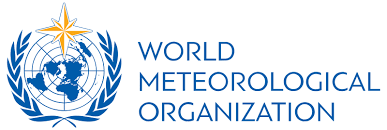On average, African countries are losing between 2 and 5 percent of their gross domestic product (GDP), and many of them are spending up to 9% of their budgets to combat extreme climate phenomena, the United Nations warns.
While rising temperatures in Africa are slightly higher than the global average, the continent is bearing an increasingly heavy burden of climate change and disproportionate costs for essential climate adaptation measures, a United Nations agency said on Monday.
On average, African countries are losing between 2 percent and 5 percent of their gross domestic product (GDP), and many are spending up to 9% of their budgets to combat extreme weather events.
According to the World Meteorological Organisation (WMO), the cost of adaptation in sub-Saharan Africa over the next decade is estimated at between $30 and $50 billion per year, or 2 to 3 percent of the region’s gross domestic product.
The State of the Climate in Africa 2023 report underlines the urgency of investing in meteorological services and early warning systems to facilitate adaptation and build resilience. As the effects of climate change continue to be felt globally, the African continent is at a critical juncture, said Josefa Leonel Correia Sacko, Commissioner for Agriculture and Sustainable Environment at the African Union Commission.
The WMO report shows that 2023 will be one of the three hottest years recorded in Africa over the past 124 years. The continent is warming slightly faster than the global average, with an increase of 0.3°C per decade between 1991 and 2023.
According to Celeste Saulo, Secretary-General of the WMO, “Over the past 60 years, Africa has experienced a warming trend that is faster than the global average. In 2023, the continent will experience deadly heat waves, heavy rains, floods, tropical cyclones and prolonged droughts. This situation is exacerbating an already desperate humanitarian crisis.
The impact of these extreme weather events has been devastating.
Catastrophic floods in Libya have killed at least 4,700 people, while severe droughts have affected large parts of the continent, particularly in northern and southern Africa. Agriculture and food security have been particularly hard hit, with cereal production plummeting in several regions.
An urgent call for action
In the face of these challenges, the WMO report highlights the need for massive investment in climate adaptation and resilience. Without adequate measures, up to 118 million extremely poor people in Africa could be exposed to droughts, floods and extreme heat by 2030, the experts warn.
The urgency is clear, says the WMO. The continent needs increased international support to cope with the impacts of climate change and protect its most vulnerable populations, the UN agency said.
Investment in hydro-meteorological infrastructure and early warning systems is crucial to prepare the continent for the escalation of dangerous climate events, the WMO concludes.
ARD/sf/te/lb/as/APA


